LGBTQIA+ Travellers Are Claiming Their Space Worldwide
9 LGBTQIA+ travellers on moving through the world proudly, safely, and authentically
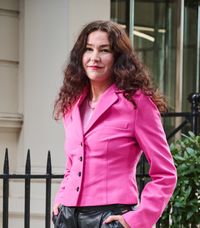
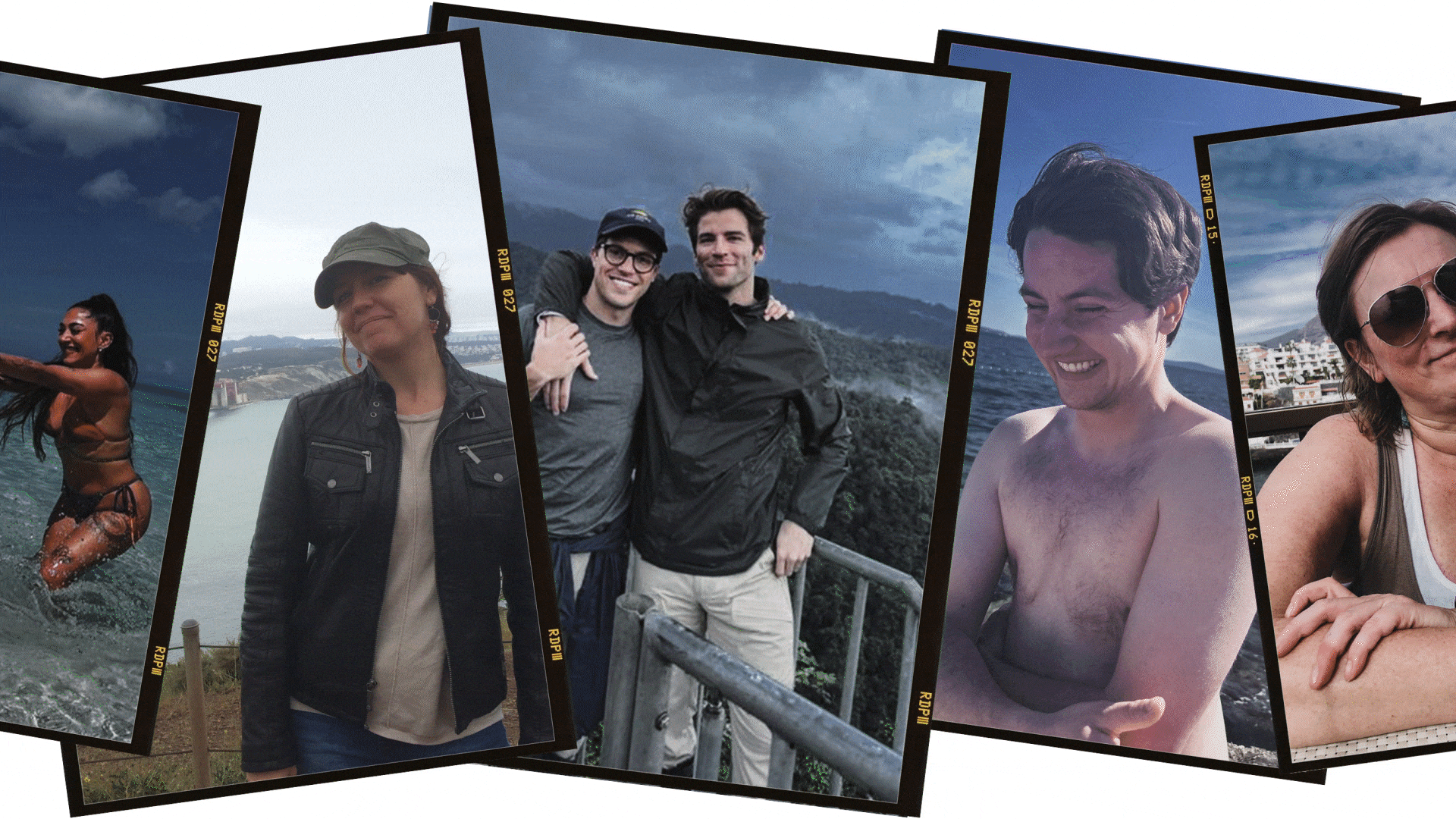
Celebrity news, beauty, fashion advice, and fascinating features, delivered straight to your inbox!
You are now subscribed
Your newsletter sign-up was successful
In a world that often demands LGBTQIA+ people shrink themselves to survive, queer travellers are taking up space—joyfully, defiantly, and on their own terms. From London Pride to rainbow-flag-lined streets in Madeira, the LGBTQIA+ community is using every journey to show that love knows no borders.
“One of our favourite parts of travelling is those unexpected bursts of queer joy,” explain Taylor Phillips and Jeff O’Donnell. Lifestyle influencers with a combined following of over 550,000, they’ve made it a practice to chase joy across continents and they don’t just travel the world—they immerse, connect, and celebrate.
Whether it’s a drag show in an unfamiliar language (“the perfect way to immerse yourself in the local culture... you get the best music”) or the simple intimacy of holding hands in public, they say these moments feel like small celebrations of freedom. “They remind us that joy, resilience, and the right to be fully ourselves are things we carry with us.”
Across the globe, they’ve discovered that LGBTQIA+ culture is a connective tissue.“It never stops amazing us how quickly we feel at home with other LGBTQIA+ people. There’s a shared understanding, a global familiarity.” Their advice to other queer travellers? “Start where you feel safe. But don’t let fear steal your freedom. You’re never as alone as you think.” It’s a sentiment shared by Ellie Prohan, a Presenter, DJ and radio host whose mother fled Iran when she was just three months old. “Don't let fear shrink your world. Do your research, trust your gut, and find strength in queer communities, both online and on the road.”
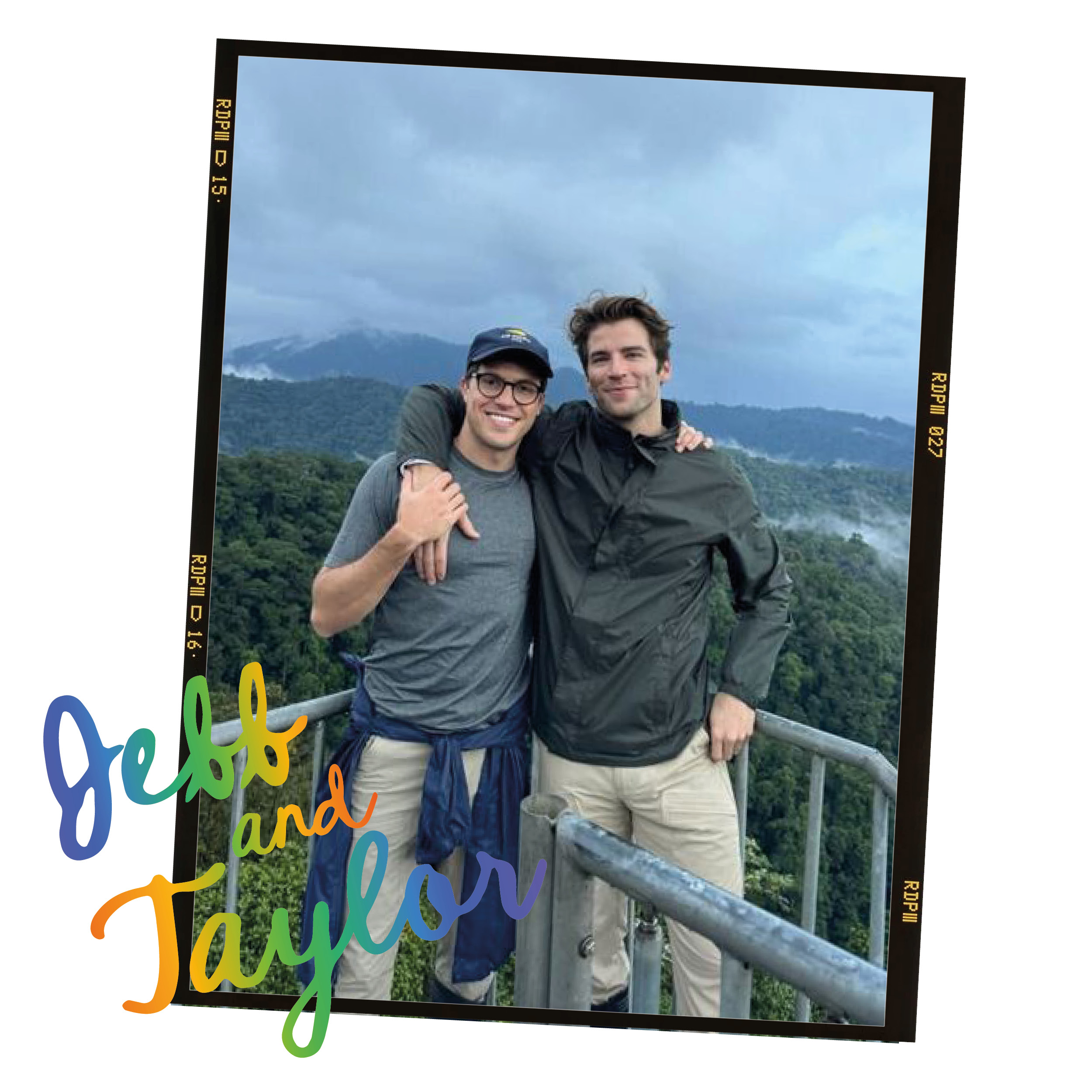
L-R: Jeff O’Donnell and Taylor Phillips
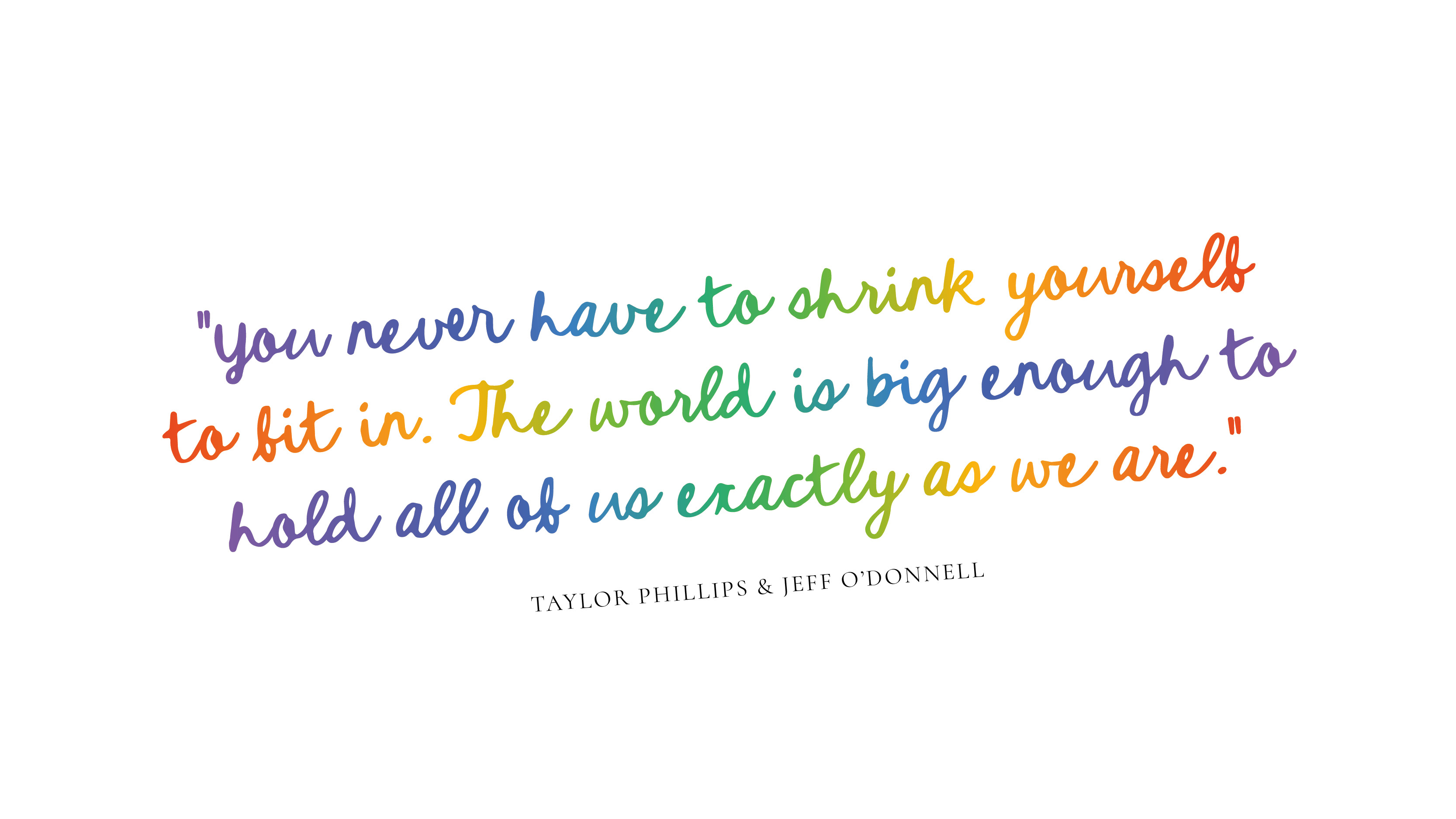
Chadi Zeneddine is from Lebanon, and his partner Roberto Acosta Velazquez hails from Mexico. Their relationship began in Beirut—a city they describe as “vibrant and complex when it comes to queer love.” Their story unfolded not only across geography, but across expectations. “For us, travelling across borders became a form of quiet rebellion,” Chadi remembers. “It allowed us not just to escape judgment, but to actively challenge the norms that tried to define our identities.”
In both of their home countries, being openly queer comes with risks and constant calculations. They recall realising that their love meant crossing borders not just physically, but emotionally and politically. Moving to Madrid gave them the space to be more visible—and more generous.
Through Kindred, a home-swapping platform rooted in community, they’ve transformed hospitality into solidarity, opening their home to fellow travellers who, like them, “carry stories that don’t always fit into traditional boxes.”
“Travel became a form of quiet rebellion,” Chadi says. “Kindred isn’t just about space. It’s activism. It’s safety. It’s chosen family.”
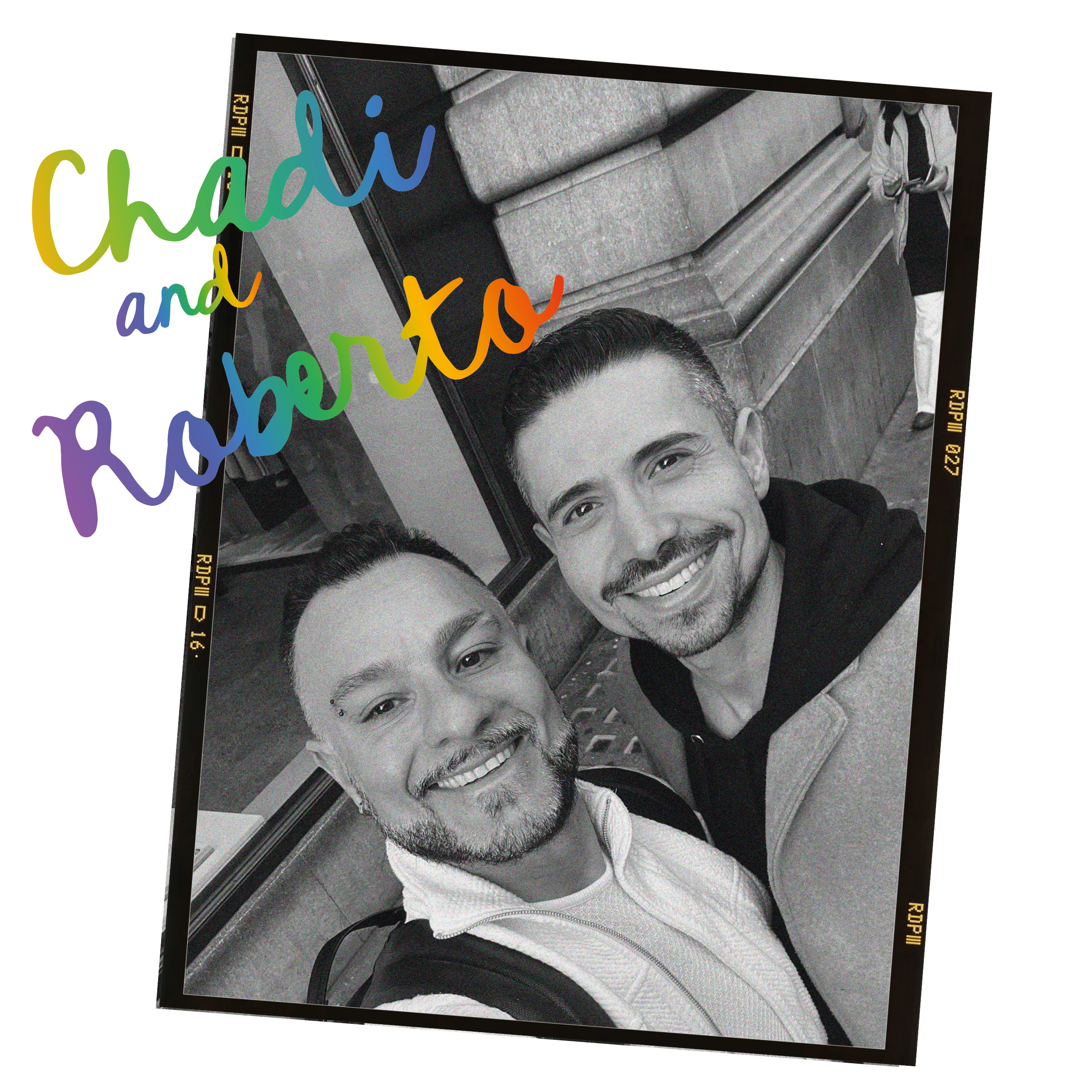
L-R: Chadi Zeneddine and Roberto Acosta Velazquez
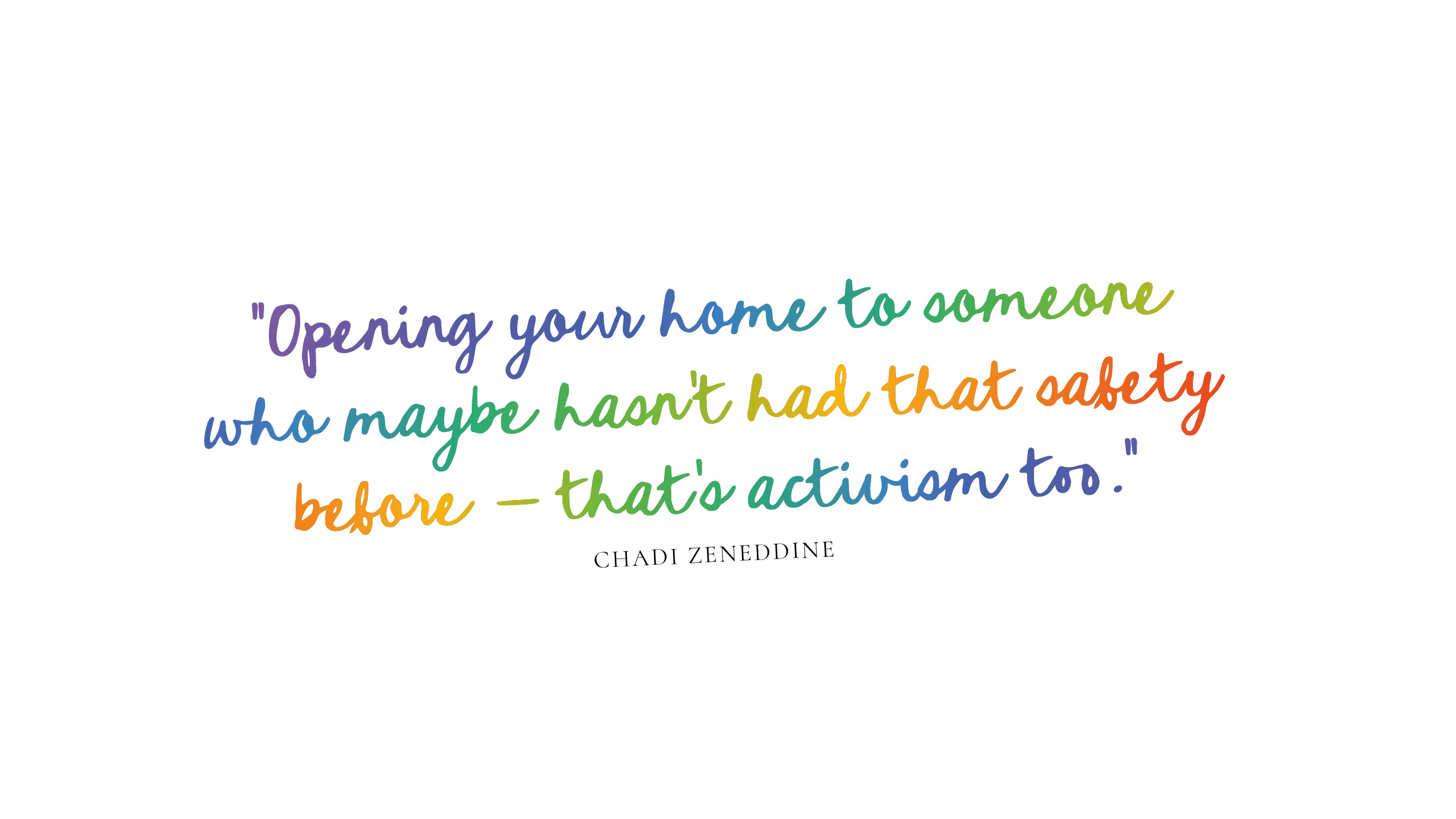
This rise in chosen family travel is shaping a new narrative. Expedia data shows LGBTQIA+ people are just as likely to travel with chosen family as with biological family—whether for city escapes in Amsterdam, beach getaways in Phuket or Pride parades in Edinburgh. 54% of queer travellers plan to attend a Pride event this year, and 76% of those will celebrate away from their hometowns.
In cities like Brighton—the UK’s top-trending beach destination—Sardinia, and Zurich, LGBTQIA+ travellers are finding fresh destinations that balance beauty with belonging, it’s something Tomás Drouin understands completely. A trans man who spent a year travelling the globe before settling in Lisbon, he founded Aconchego House, a nonprofit community space for LGBTQIA+ travellers and locals alike. “I wanted to build a space where queer people could find connections abroad,” he says. “We’ve hosted folks from all over—including some of the first queer people to apply for asylum here from the U.S. It’s a space that says: you belong.”
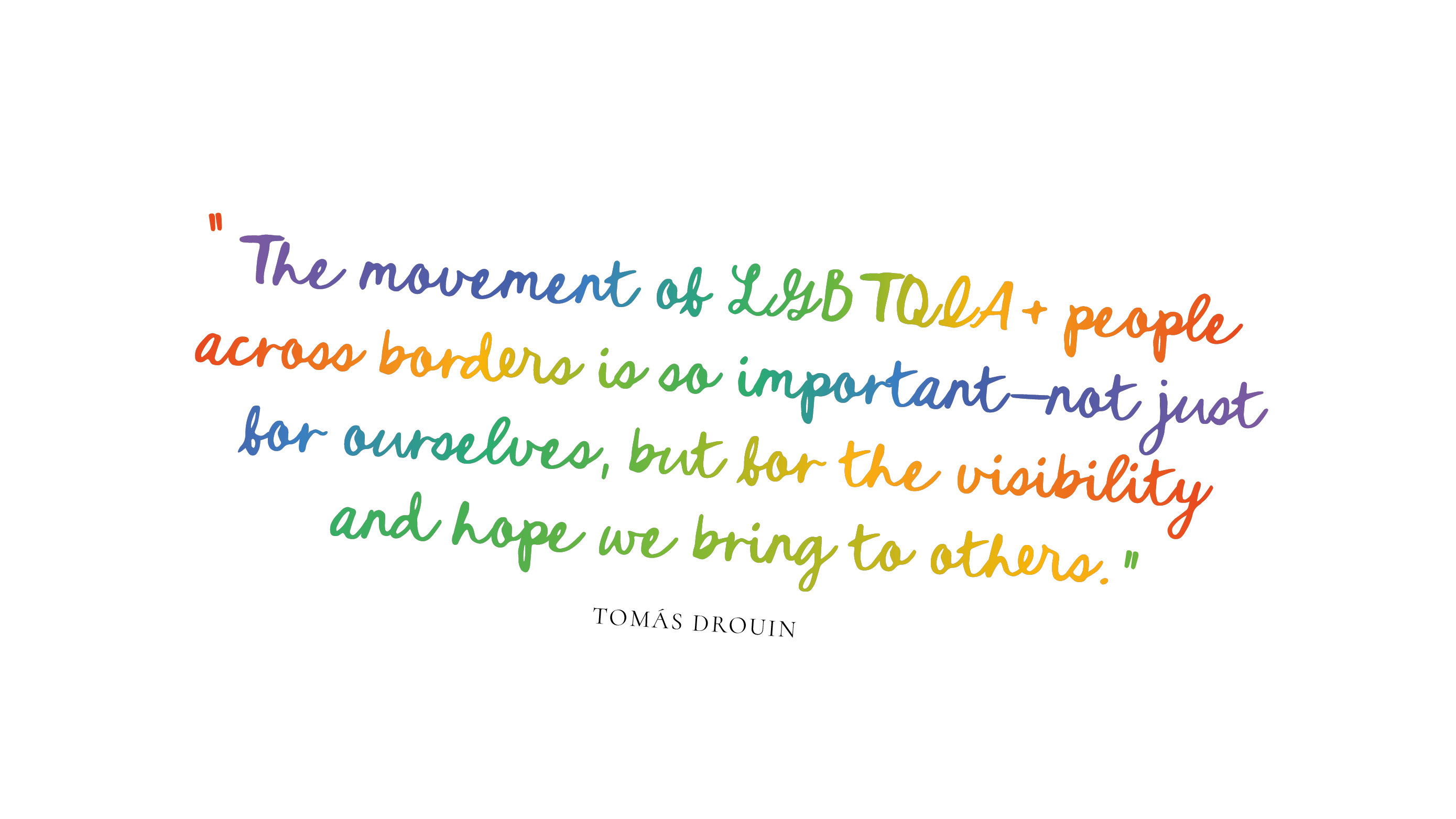
“Most people think about flights and hotels when they plan a holiday… I start by checking whether it’s legal to be me in that country,” says Tate Smith, an award-winning activist and trans rights advocate. He’s not alone. Data shows that safety is top of mind for LGBTQIA+ travellers, many of whom rely heavily on trusted queer word-of-mouth and verified welcoming accommodations, according to insights from Booking.com.
Tate says he often feels braver abroad though. Anonymity, he believes, can be protective.“I don’t get my top surgery scars out in the UK,” he says. “The stares, the sensationalism—it’s exhausting.” But in a beach cave in Jersey, post-lockdown, after an afternoon of swimming and feeling the waves crash against his new, flat chest, Tate stood shirtless. “I felt liberated and free. That’s why I was there—to feel nothing but trans joy.”
Even so, he’s cautious. He refuses to visit countries where his true self wouldn’t be welcome, no matter how well he “passes.”
“I won’t contribute to the economy of any country that doesn’t support my community.” At a time when search interest in “transgender” is at a record high and 70% of LGBTQIA+ travellers say authenticity is crucial when choosing where to go, affirming spaces and solidarity matter more than ever.
As it does for so many people, travel gives Tate a chance to clock off—and that includes clocking off from being trans. “I can just be like any other British guy walking around shirtless, going into a bathroom; something I’d never dare to do at home. I feel so defiant and free.”
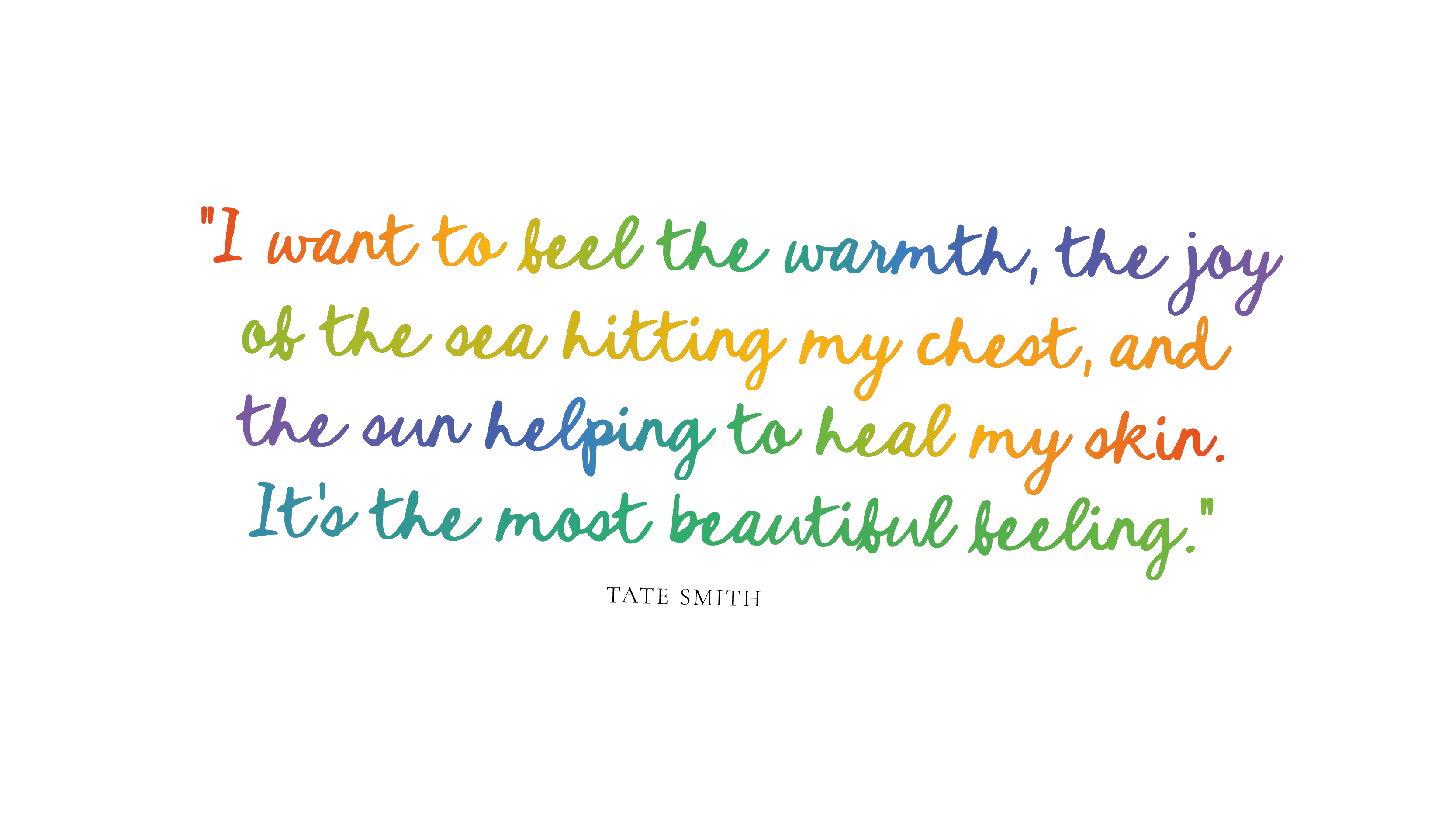
Polly Shute’s travel evolution began later in life.“I came out at 41,” she says, “and didn’t initially consider whether a place was LGBTQIA+ inclusive.” But after an uncomfortable trip to Morocco—side glances, silence, a calculated choice not to hold hands with her partner—she reconsidered. Now, like Tate, she avoids countries where being gay is illegal. “My straight friends are shocked to hear there are still over 50 of them,” she adds.
Despite largely positive travel experiences, Polly recalls one incident in France where hotel staff insisted on separating her and her partner into twin beds, despite their clear wishes.“We were ignored. It was a small thing, but it stuck.”
Now, as founder of the Out & Wild Festival, Polly channels those experiences into inclusive programming, with intersectionality at its heart. “Sharing stories creates empathy,” she says. “And empathy builds community.”
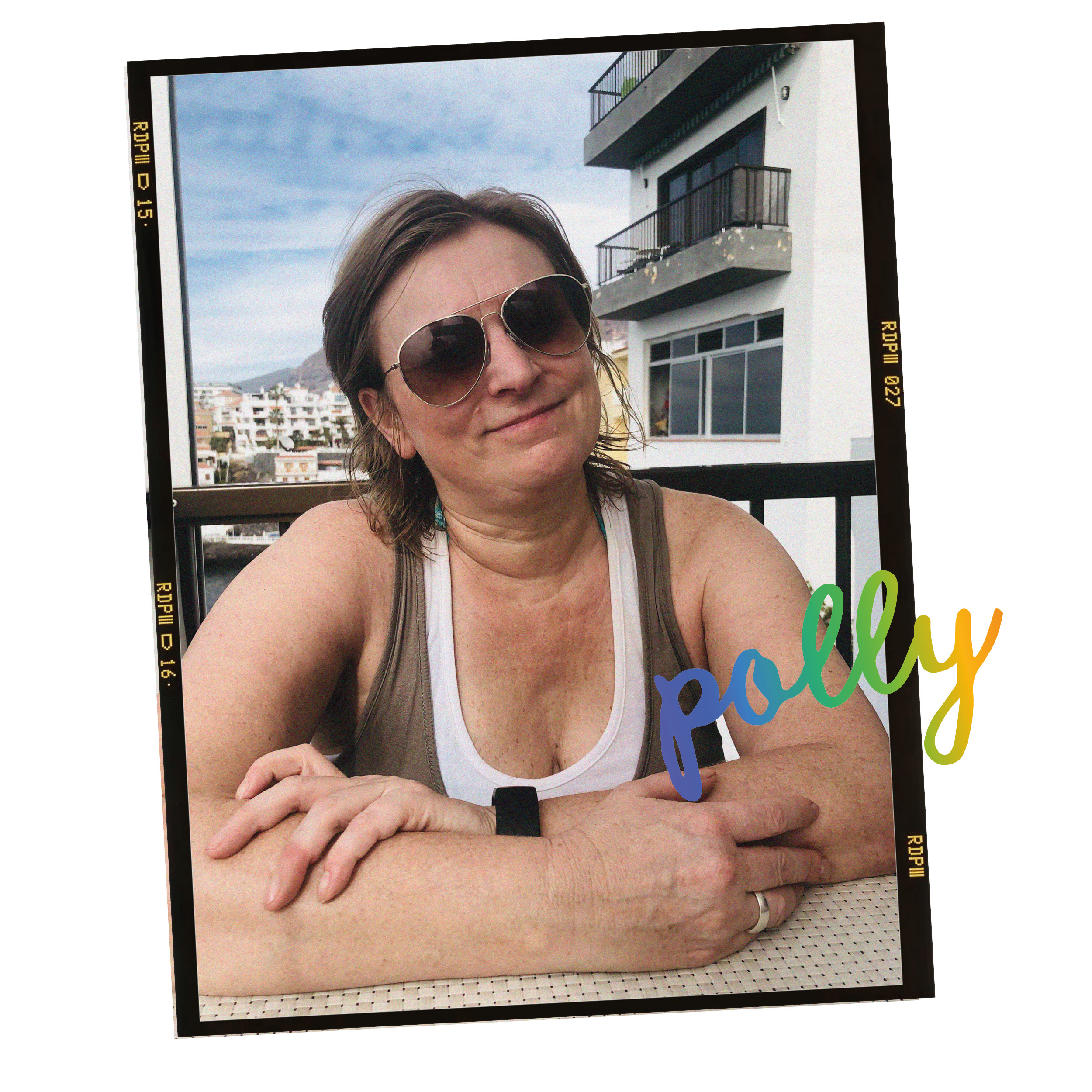
For many, just existing openly, whether at a festival or in another country feels radical. Aggy agrees. “I was born and raised in Lithuania, but I felt more accepted as a gay person after leaving and moving to the UK,” he recalls.
Growing up gay in Lithuania meant surviving through silence.“You’re either with us or against us,” was the sense he got from teachers and classmates. “I joined the people I feared, because I couldn’t endure the slurs.”
London was always the dream and when he finally made it, he began the long work of healing and coming out. “I love Lithuania, but it hasn’t felt like home for a long time. The dominance of religion means the biggest Pride event there is met with people trying to literally pray the gay away.”
In Amsterdam, he found something else: “There, people mind their own business. The freedom is tangible. That’s why I keep going back.”
He feels the same about Edinburgh, a city where he’s comfortable holding hands with his partner, Matt, strolling the Royal Mile, and booking a couples’ room without shame. “It’s a place that has completely charmed me.”
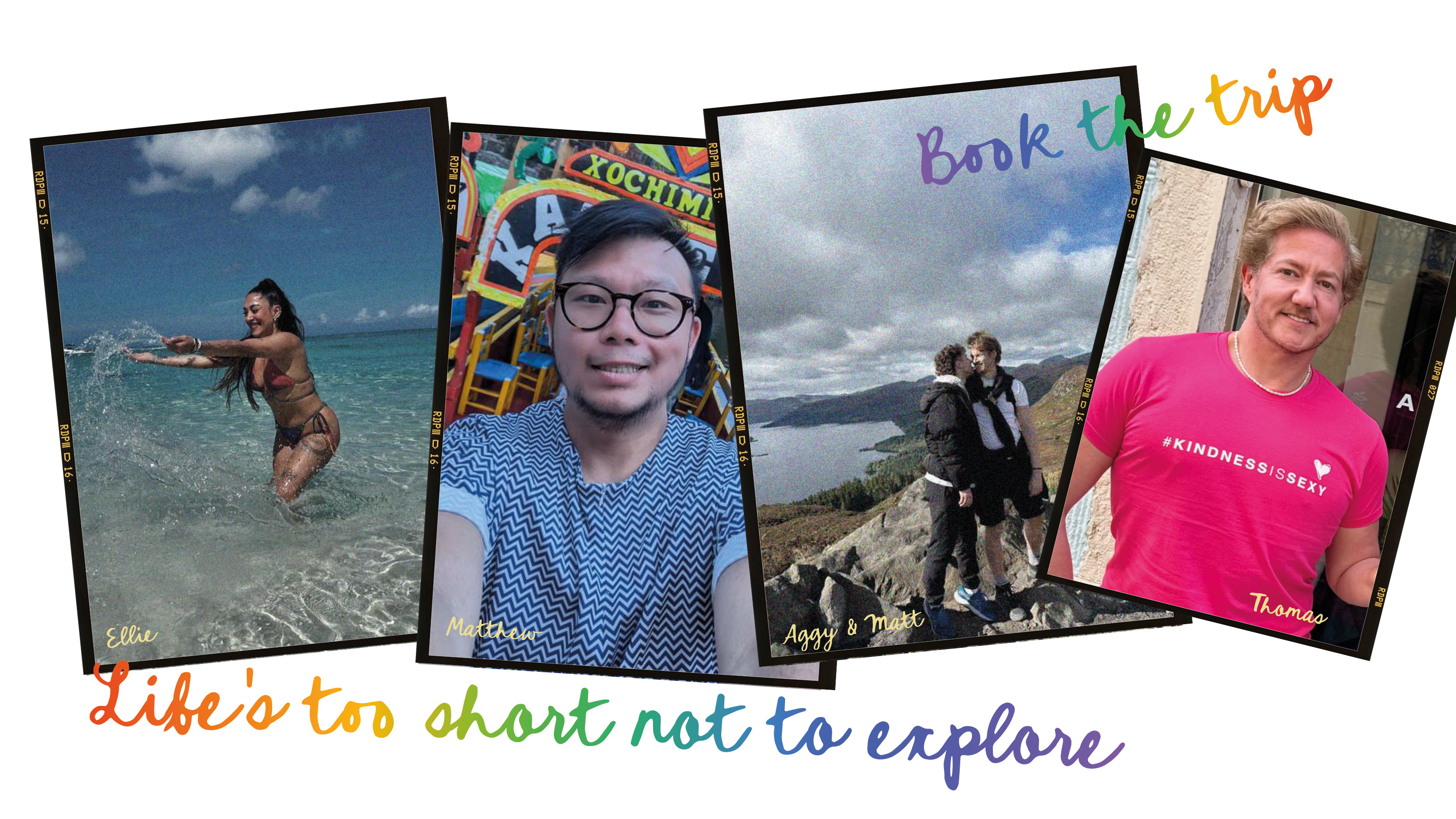
“As a queer traveller—I identify as pansexual—it’s not just about where you can go legally,” says Matthew Chew, a UK-based creative strategist of Malaysian Chinese heritage. “It’s also about what the society says about gender and expression. That’s not always written into laws—it’s found in people.”
This awareness makes travel both thrilling and complex for him. “There are places I’ve had to avoid for safety,” he admits. “But sometimes, even just holding hands in public—where it might not be allowed—can feel quietly radical. Liberating, even.”
It’s a sentiment echoed by Taylor and Jeff, who say their travels—from Madrid to Reykjavík—are always about that spark of freedom and acceptance. “Book the trip,” Jeff advises. “Life’s too short not to explore.”
“When I travel through South or Southeast Asia, I always try to understand what local communities say about gender,” Matthew adds. “Many have ancient, revered third-gender roles. You wouldn’t learn that growing up in the West, where everything is still viewed so rigidly. Sex and gender are treated as the same here—but they’re not.”
Sometimes travel isn’t temporary. For a growing number of LGBTQIA+ people, moving abroad is an act of survival. “For years, I guided all kinds of clients through international moves,” says Jess Drucker, founder of Rainbow Relocation Strategies. “But the ‘best’ destinations for straight folks—tax havens, Gulf states, parts of Asia—were places I, as a queer person, would never feel safe calling home.”
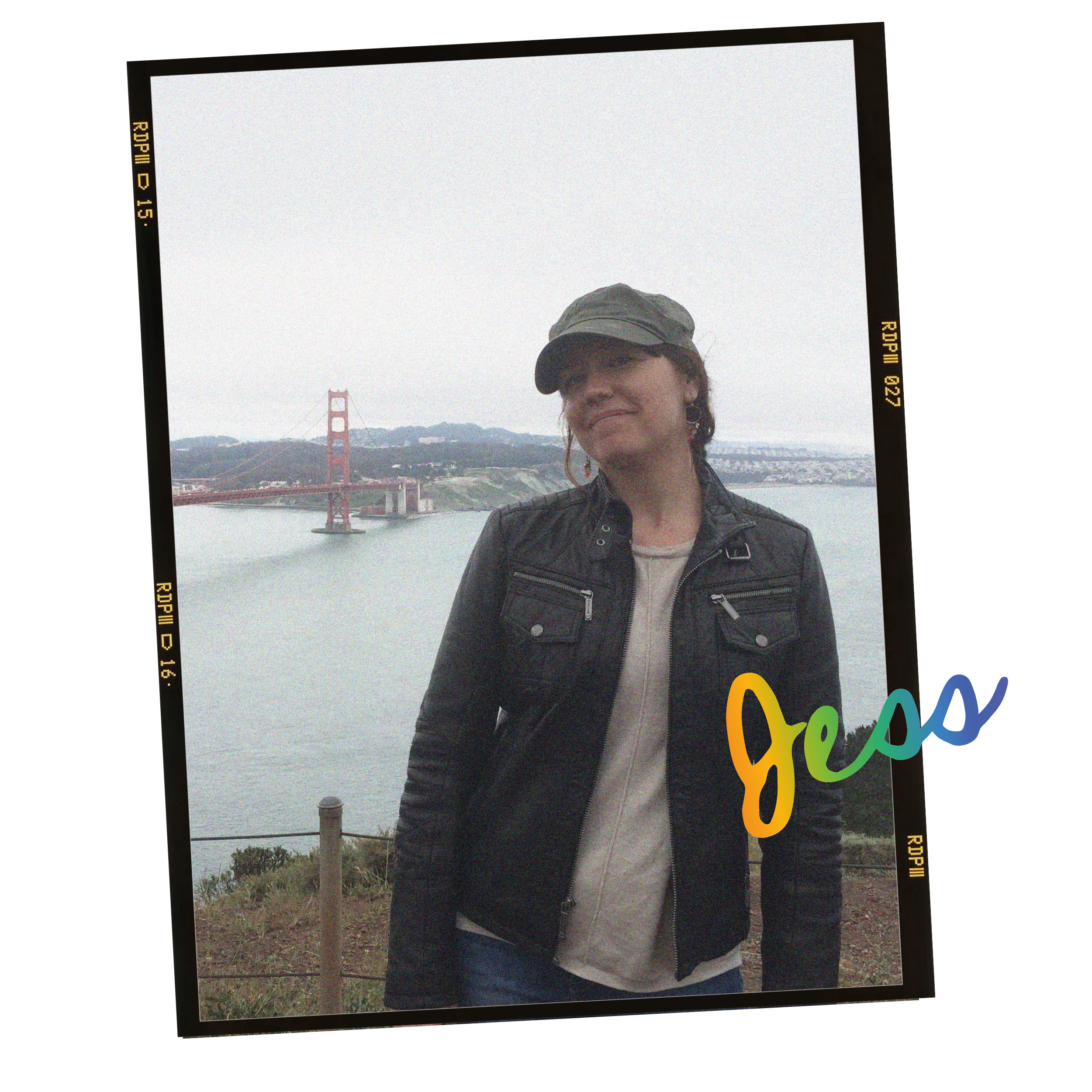
Jess launched her consultancy in response to that disparity—especially after Roe v. Wade was overturned in the U.S.“Watching rights disappear overnight made me realise: marriage equality could be next. Queer families needed relocation help built around identity, not just logistics.”
Today, Jess focuses on safe haven destinations that affirm LGBTQIA+ people, offering clients not just relocation, but the chance to build whole new lives.
In doing so, she joins a long lineage of queer travellers who’ve used their journeys to carve out space—for themselves and others. “Travel isn’t just about seeing the world,” Jess says. “It’s about being able to be yourself in it.”
LGBTQIA+ travel isn’t always easy—but it is essential. It builds bridges between strangers and cultures. It fosters solidarity where once there might have been silence and shows a new generation that sometimes, the simple act of showing up is the most radical thing of all.
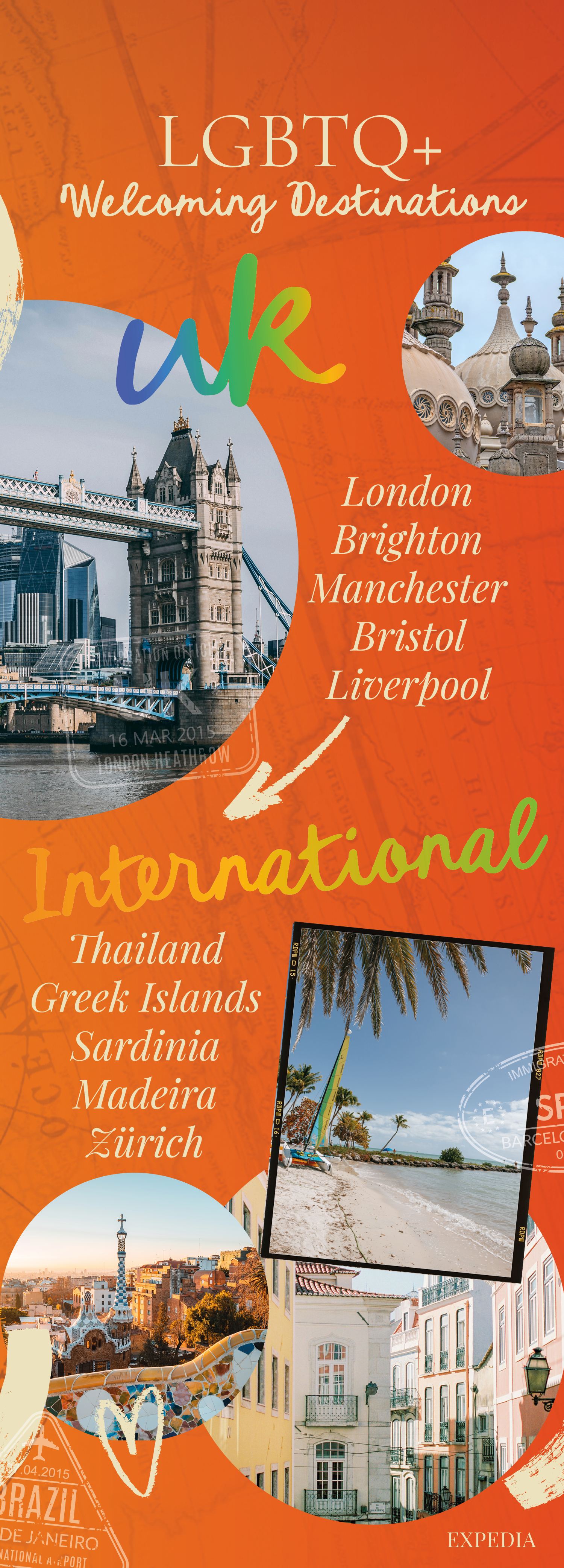

Mischa Anouk Smith is the News and Features Editor of Marie Claire UK.
From personal essays to purpose-driven stories, reported studies, and interviews with celebrities like Rosie Huntington-Whiteley and designers including Dries Van Noten, Mischa has been featured in publications such as Refinery29, Stylist and Dazed. Her work explores what it means to be a woman today and sits at the intersection of culture and style. In the spirit of eclecticism, she has also written about NFTs, mental health and the rise of AI bands.